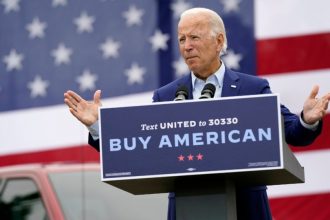Canada, a country known for being polite and friendly, has recently caught itself at odds with China, Asia’s economic superpower. Recently, China has arrested three Canadian citizens, with one sentenced to death, and could possibly retaliate further. So how did we get caught up in this mess?
The conflict began on December 1st when Huawei CFO Meng Wanzhou was arrested in Vancouver International Airport coming off her business flight from Hong Kong by request of the U.S. for suspicions of violating trade sanctions with Iran. The arrest appears to be politically fueled as President Trump admits, he could use her as a bargaining chip for a U.S.-China trade deal.
The arrest appears to be politically fueled as President Trump admits, he could use her as a bargaining chip for a U.S.-China trade deal.
The Trump administration has also filed criminal charges against Huawei on January 29 with allegations including stealing trade secrets from T-mobile having business dealings with Iran. They have not pressed further because the risk of jeopardizing trade talks, but the verdict on the charges are not yet known.
In Canada, Meng Wanzhou has since been released on bail and has been allowed to roam around her Vancouver properties, worth over C$22 million, and indulge in the luxury shopping and restaurants daily with the only stipulation being an 11pm curfew. Her situation seems to be decent considering she is in the middle of a complex political dynamic between the two most powerful countries, but what she is worried about is the U.S. request for extradition.
China’s government has been so focused on this case because of Huawei’s success as a major cell phone producer and its plans to become the world leader in 5G technology. The tech giant had sales of US$109 billion in 2018, about as much as Canada’s top 4 corporations combined in terms of revenue, and it could rise significantly once they start delivering on 5G contracts.
Huawei also funds expensive 5G research at Canada’s top institutions, including McGill, University of British Columbia, and the University of Toronto, giving them intellectual property to further establish their position as the world’s 5G leader. This technology could have a massive impact on the world by increasing broadband speeds by a magnitude that can lead to advancements such as mobile surgeries, safe autonomous vehicles, and major expansions in the Internet of Things.
China’s technology is very promising, but the U.S. has made it clear that it is against China’s development of 5G due to security concerns and has banned Huawei and ZTE, another Chinese company. Though the U.S. has not found any evidence of spying from Huawei, they are worried about future espionage and the possibility that China’s Shenzhen-based tech firms could eventually overshadow the Silicon Valley as the world’s innovation hub. As a result, the U.S. is trying to develop its own 5G through Verizon and AT&T and has asked its allies to also ban Huawei’s 5G technology.
China’s technology is very promising, but the U.S. has made it clear that it is against China’s development of 5G…
Canada, as a U.S. ally, has been under pressure to comply with their wishes and President Trump has demonstrated that he is not afraid to be tough. U.S.-Canada relations have not been at their best recently after several attacks on trade and it could worsen if U.S. demands are not met. Supporting the U.S. would lead to further strained political and economic relations with China, however, which would be detrimental due to China’s status as a trade partner. Canada is not in a great position and has to choose between the lesser of two negative outcomes.
Canada is not in a great position and has to choose between the lesser of two negative outcomes.
It is not clear what the final verdict will be at the moment but Prime Minister Trudeau seems to be caving to U.S. pressure. He spoke out strongly against the arrests of Canadians in China and on January 26th he fired his foreign ambassador to China, John McCallum, for saying Meng Wanzhou had a strong case against extradition and that it would be “great” if the U.S. dropped their request. Many Canadians have criticized Trudeau for caving to U.S. pressures and consumers, especially rural dwellers, welcome the idea of high speeds and reduced Canadian telecom prices, which are among the highest in the world.
Canada has since pledged $40 million for 5G research to Nokia, who is currently far less advanced and more costly than Huawei in 5G capabilities but more politically aligned to Canada’s interests. Huawei is not yet banned in Canada but Chinese Foreign Ambassador to Canada, Lu Shaye, has warned of repercussions if a ban is enacted and she has spoken out strongly against Trudeau’s actions so far, describing them as ignominious and hypocritical.
All things considered, 5G technology looks beneficial and may spark the next technological revolution, but the Huawei case has highlighted that 5G development will be highly competitive. The theme of competition over collaboration in foreign relations is a direct result of the U.S.-China struggle for power and it is affecting the whole world. Other U.S. allies, specifically Australia, the U.K., and New Zealand, should take extra precautions to avoid Canada’s circumstances. It is currently unclear whether the Trump Administration’s mercantilist approach will produce long-term benefits for the U.S. but it will definitely keep causing headaches and anxiety for the international community in the near future.








